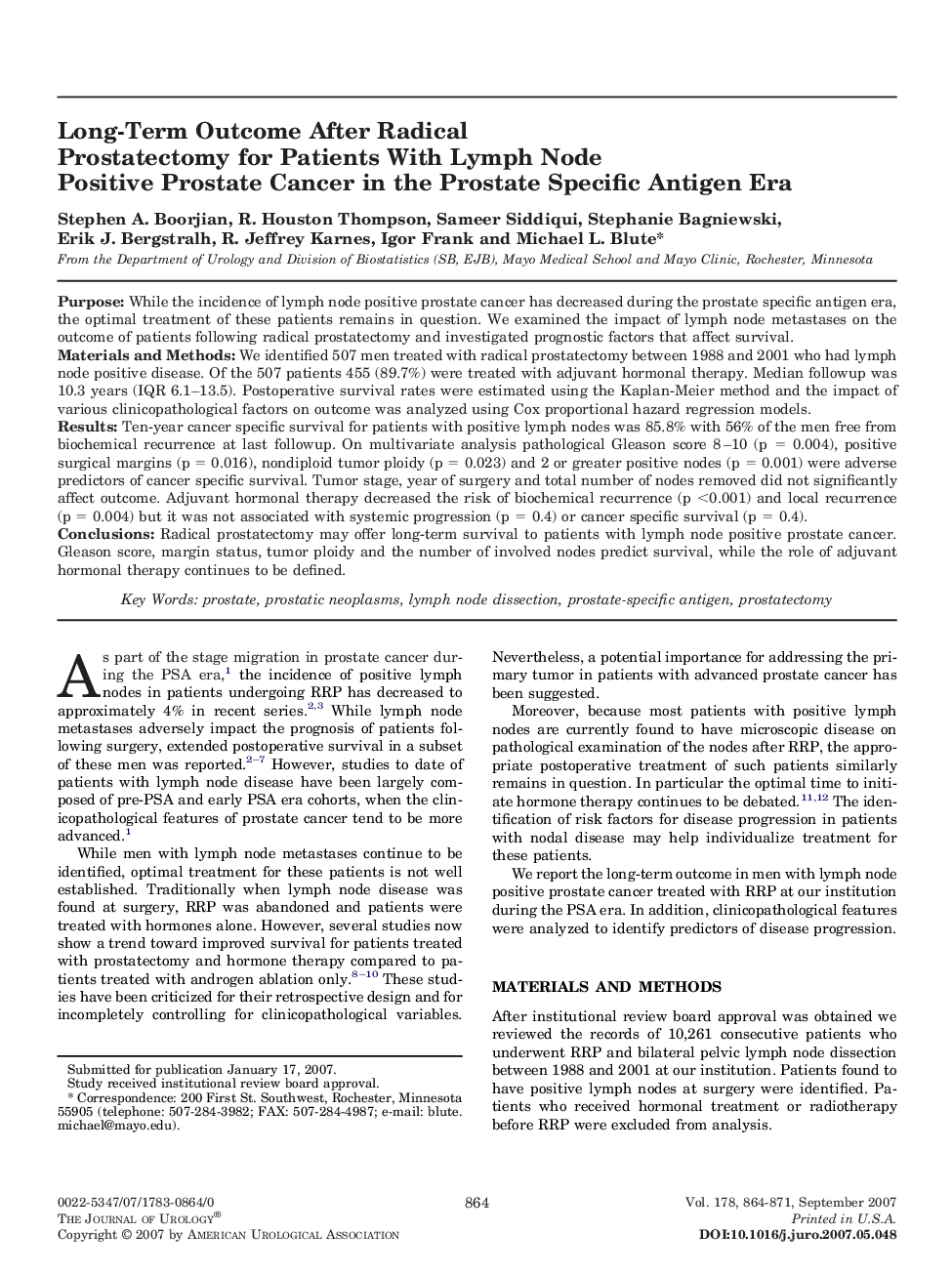| Article ID | Journal | Published Year | Pages | File Type |
|---|---|---|---|---|
| 3877942 | The Journal of Urology | 2007 | 8 Pages |
PurposeWhile the incidence of lymph node positive prostate cancer has decreased during the prostate specific antigen era, the optimal treatment of these patients remains in question. We examined the impact of lymph node metastases on the outcome of patients following radical prostatectomy and investigated prognostic factors that affect survival.Materials and MethodsWe identified 507 men treated with radical prostatectomy between 1988 and 2001 who had lymph node positive disease. Of the 507 patients 455 (89.7%) were treated with adjuvant hormonal therapy. Median followup was 10.3 years (IQR 6.1–13.5). Postoperative survival rates were estimated using the Kaplan-Meier method and the impact of various clinicopathological factors on outcome was analyzed using Cox proportional hazard regression models.ResultsTen-year cancer specific survival for patients with positive lymph nodes was 85.8% with 56% of the men free from biochemical recurrence at last followup. On multivariate analysis pathological Gleason score 8–10 (p = 0.004), positive surgical margins (p = 0.016), nondiploid tumor ploidy (p = 0.023) and 2 or greater positive nodes (p = 0.001) were adverse predictors of cancer specific survival. Tumor stage, year of surgery and total number of nodes removed did not significantly affect outcome. Adjuvant hormonal therapy decreased the risk of biochemical recurrence (p <0.001) and local recurrence (p = 0.004) but it was not associated with systemic progression (p = 0.4) or cancer specific survival (p = 0.4).ConclusionsRadical prostatectomy may offer long-term survival to patients with lymph node positive prostate cancer. Gleason score, margin status, tumor ploidy and the number of involved nodes predict survival, while the role of adjuvant hormonal therapy continues to be defined.
